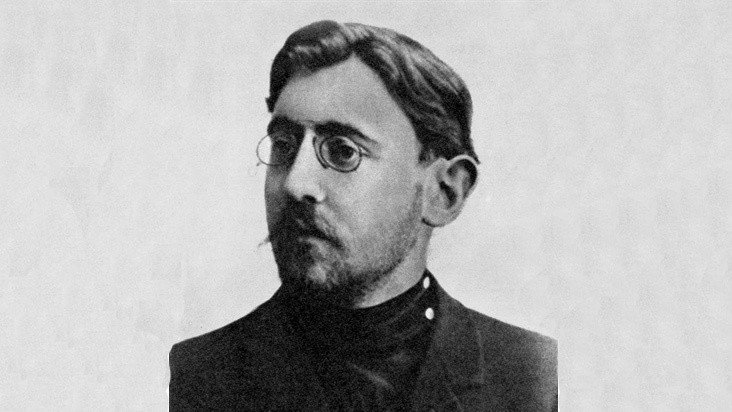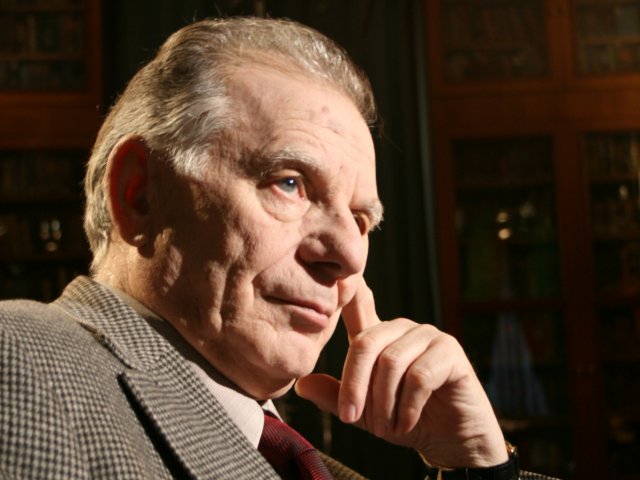
From the very first lines, his books compel the reader’s attention and make him wonder about what is hidden in the most basic things and occurrences. Most importantly, they teach how to think. Millions of people from all over the world read and re-read them. The names of his most famous works always have the same phrase: “for entertainment.”
In 1934, the famous fantast H. G. Wells had a meeting in Leningrad’s Hotel Astoria with a group of Soviet writers and science popularizers. Getting to know our hero, Wells asked him: “Aren’t you that Jacob who so deftly debunked the invisible man, pointing out that he should have been blind as a newborn puppy?” To which he replied: “I plead guilty, Mr. Wells, for it’s indeed of my making…” The last name of that Jacob – i.e., Yakov – was Perelman.
He was born in Białystok, and at seventeen published his first popular science essay in the Grodno Provincial Gazette. After enrolling in the Saint Petersburg Forestry Institute, he began cooperating with Priroda I Lyudi magazine. Perelman never made use of his forestry degree: by the time of his graduation, he had already been an experienced journalist and an amateur writer. The first volume of his Physics for Entertainment was released in 1913 with resounding success. Khvolson, a physics professor at Saint Petersburg University, told the author: “We have plenty of forestry scientists, but no one who can write about physics like you. I strongly advise you: keep up writing such books.”
The same year, Perelman began corresponding with Tsiolkovsky and continued till the death of the father of Russian astronautics. Next year, in 1914, Perelman added a chapter to Jules Verne’s From the Earth to the Moon. Perelman was also the one who gave a name to such kind of literature, as he called his chapter “science fiction.” Up until Perelman, nobody would use this phrase: Jules Verne called his books “science,” while H. G. Wells used the term “fiction books.”
However, Yakov Perelman didn’t throw himself into science fiction but followed Khvolson’s good advice. Perelman authored more than a hundred popular science books published in millions of copies: Arithmetic for Entertainment, Mechanics for Entertainment, Algebra can be Fun, Astronomy for Entertainment, and others.
He didn’t limit himself to books, either: a unique museum opened in Leningrad, where one could see a “perpetual motion machine,” a million peas, a model of Tsiolkovsky’s starship, the 707 digits of the π constant, and even the museum’s own meridian. Contrary to the classical museum rule, everything there could and should be touched. The signs were telling it right away: Touch. Yakov Perelman, the academic adviser of the House of Entertaining Science, recommended that the staff made the exhibits “hand-resistant” and be happy when kids who drop by the museum grow up inquisitive.
Yakov Isidorovich Perelman died of hunger during the blockade, and the House of Entertaining Science exists no more. What a pity. Maybe, had it existed today, the new generation would prefer knowledge over Pepsi.






















